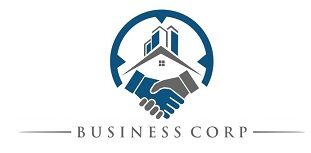What’s the Relationship Between Cost and Value When Hiring a Business Management Consultant?
In the complex and multifaceted realm of modern business, the decision to engage a business management consultant is a strategic move for enhancing performance.
But as organizations seek external expertise, a pivotal question arises: How does the cost of hiring a business management consultant correlate with the value they deliver?
This blog post delves into this critical relationship, shedding light on factors that influence consultant fees, exploring the potential benefits they bring, and, ultimately, helping businesses make informed decisions about their consulting investments.
Join us as we navigate the intricate interplay between cost and value in the realm of business management consulting.
Why do businesses hire management consultants?
The reasons behind hiring business management consultants are as diverse as the businesses themselves. Sometimes, it’s because a company is facing a specific challenge, like declining profits or inefficient processes. In other cases, it’s about staying ahead of the competition or adapting to a rapidly changing market.
The Global Business Management Consulting Services market was worth $819.79 billion in 2020. By 2026, economists expect it to reach $1244.36 billion. This reflects their growing demand in the business world. But as we’ll soon discover, the value they provide comes at a cost, and that’s where things get interesting.
The relationship between cost and value
Now, let’s dive into the heart of the matter – the intricate dance between the cost of hiring a business management consultant and the value they bring to your organization.
The cost-value spectrum
Picture this as a spectrum. On one end, you have low-cost consultants. They might seem like a budget-friendly choice, but as the saying goes, “You get what you pay for.” They may lack the depth of experience or the breadth of knowledge needed to tackle complex challenges effectively.
On the other end, there are high-cost consultants. They come with a hefty price tag, but they often bring a wealth of experience and a track record of success. They’re like the top-tier specialists who can transform your business, but they don’t come cheap.
Finding the balance
So, how do you strike the right balance between cost and value? It’s a bit of a tightrope walk. Your decision should align with your project goals and budget. If you’re facing a minor issue, a high-cost consultant might be overkill.
On the other hand, if your business is at a critical juncture, cutting corners on consulting fees could be a costly mistake.
Optimizing the equation
So, here are some tips to optimize the cost-value equation:
- Due diligence: Take your time when selecting a consultant. Research their background, check references, and ask for case studies that demonstrate their past successes and justify their price.
- Clear expectations: Define your expectations and objectives upfront. A well-defined project scope can prevent misunderstandings and cost overruns.
- Effective communication: Maintain open and transparent communication with your consultant throughout the engagement. Regular updates and feedback can ensure that you’re getting value for your investment.
Remember, the relationship between cost and value isn’t static — it’s dynamic and project-specific. What might be a wise investment in one scenario could be unnecessary in another.
By carefully assessing your needs and weighing the costs against the potential benefits, you can make informed decisions that lead to better business outcomes.
Factors beyond cost and value
The world of business management consulting hinges on more than just dollars and benefits. Here’s a closer look at three additional pivotal factors that can shape the outcome of your consulting engagement:
1. Cultural fit and compatibility
Your business has its unique culture, values, and methods. It’s vital that your chosen consultant aligns with these elements. When a consultant embraces your culture, it fosters collaboration, efficiency, and harmony. A mismatch, on the other hand, can lead to friction and hinder integration. Think of it as finding the right puzzle piece to complete your picture.
2. Ethical considerations and transparency
Trust is the bedrock of fruitful consulting relationships. Working with consultants who uphold high ethical standards and practice transparency is paramount. So, seek out consultants who openly discuss their fees, methodologies, and any potential conflicts of interest. This honesty lays a solid foundation for trust to flourish.
For instance, you’ll find that The Norfus Firm’s business management consultants prioritize ethical conduct and transparent communication.
3. The importance of a long-term partnership
Some consulting projects are brief and project-focused, while others develop into enduring partnerships. Building a lasting rapport with a consultant can yield tailored solutions and a smoother collaborative experience. Over time, consultants who understand your business intricacies can become invaluable allies, guiding your growth and transformation.
Remember, these factors, alongside cost and value considerations, shape the consulting experience. Don’t limit your focus to financials and outcomes alone when evaluating consultants. Take a holistic view to make informed decisions that lead to lasting success.
Final thoughts
Remember that business management consultancy is more than just dollars and cents: growth, progress, and long-term success matter. So, assess your requirements, set objectives, and hire a consultant carefully. If you don’t have the time for research, consider The Norfus Firm, PLLC. Here’s to your business’s continued success!
